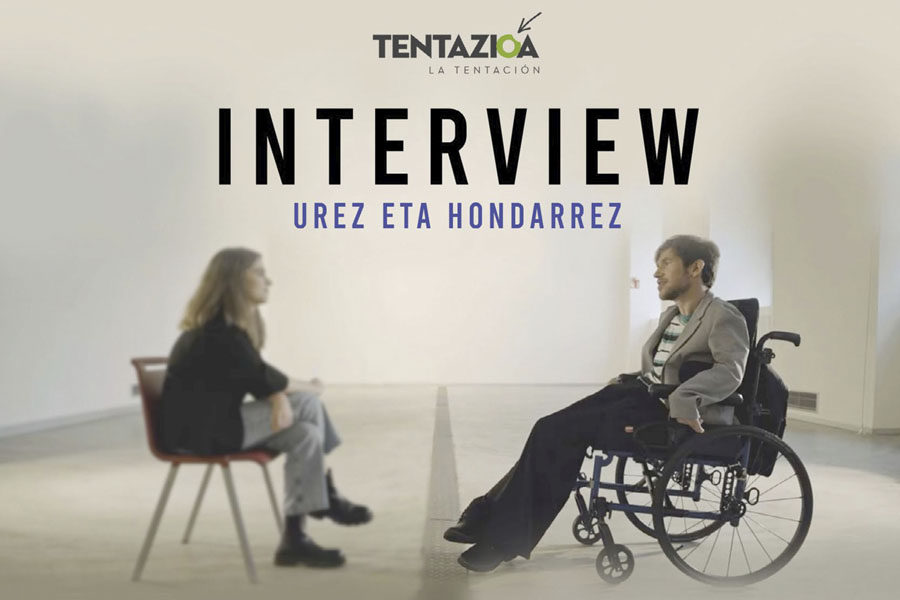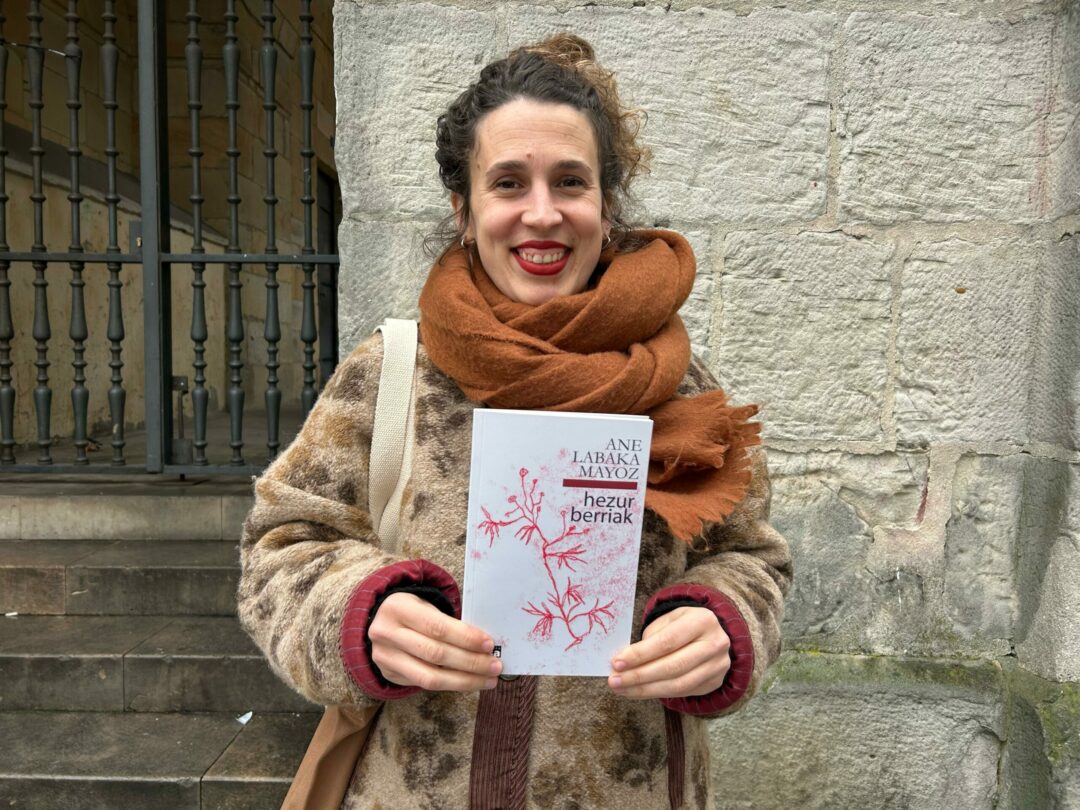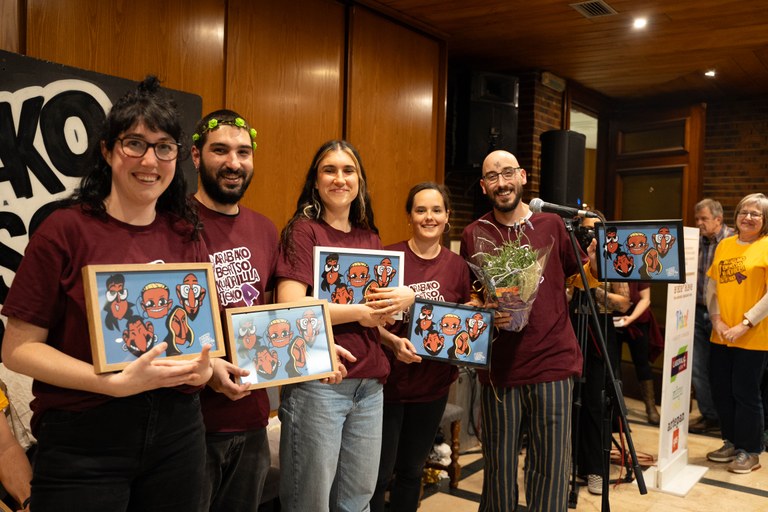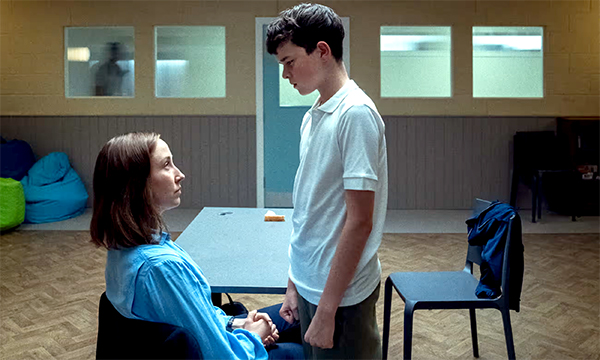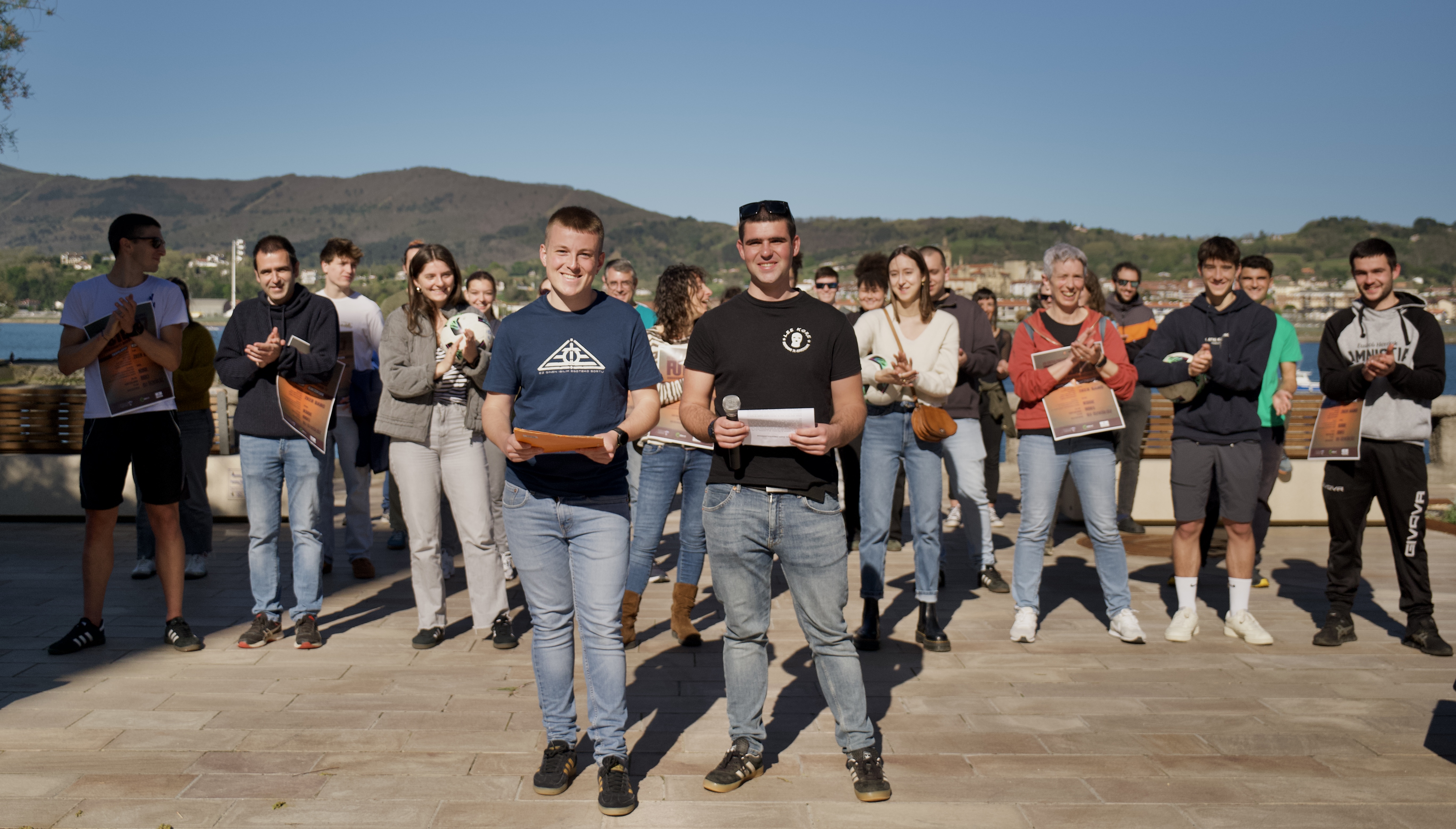From survival to collective, transmission sound
The Association of Trikitixa of Euskal Herria will present this Saturday in Azpeitia a book summarizing the history of half a century of the Association of Trikitixa of Euskal Herria. Under the title 50 years and more, Laxaro Azkune and Haritz Garmendia will delight us with the play. Since the golden weddings held by the association in 2022, the publication has focused on “preserving and strengthening intergenerational transmission.”
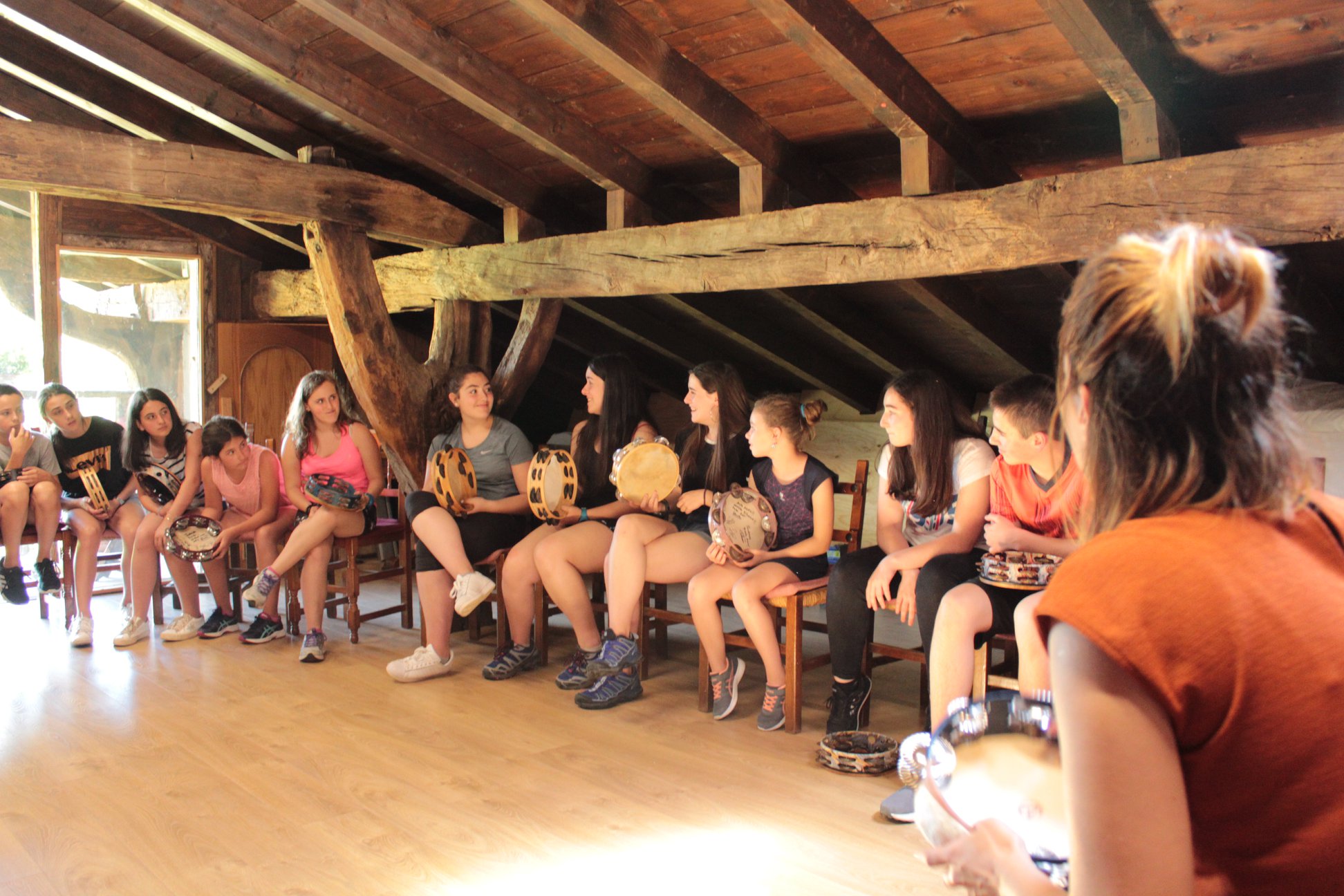
The Association of the Trikitixa de Euskal Herria (EHTE) celebrated its 50th anniversary in 2022 and that date was a stimulus to collect its history in a book. From there began the work of the authors Laxaro Azkune and Haritz Garmendia, and this Saturday they will present the Association of the trikitixa of Euskal Herria, the fruit of two years of work. 50 years and more published at the Sanagustin cultural center of Azpeitia, at 12:00 hours.
They have taken advantage of the 50th anniversary to carry out a listening exercise and “reflect on the way so far”
Representatives of the Municipality of Azpeitia and Itsaso Elizagoien, president of the Association of Trikitixa de Euskal Herria, in addition to the authors, will attend the presentation and before visiting the Basazabal Palace, the headquarters of the association.
According to Elizagoien in the introduction of the book, the objective is “to preserve and strengthen intergenerational transmission,” and before that time they already felt in the association the need for something like this. Therefore, they have taken advantage of the 50th anniversary to carry out a listening exercise and “reflect on the path taken so far”.
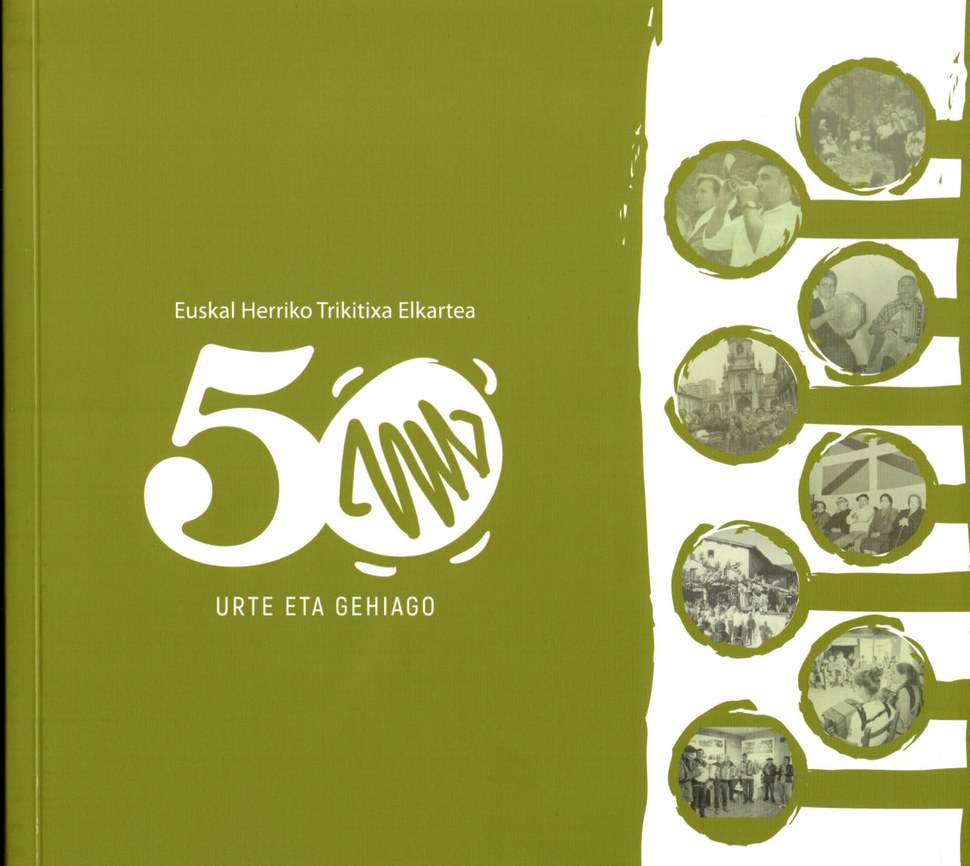
Fill a vacancy
In the same introduction, Garmendia states that the EHTE was an important driver of the recovery of the Basque culture of the 1970s. The book recounts the process of self-elaboration of a popular cultural expression of an “oppressed nation”, and in this sense “it is not a whim”, but an attempt to appropriate the necessary tools to guarantee the future.
The book “is not a whim,” but an attempt to appropriate the tools needed to secure the future.
Azkune was “pleased” with the commission of making the book, as from a very young age he has followed the world of trikitixa “from home”. It has not been easy to find and order the information, nor to fill the existing gaps, since many of the activities organized by the association during these 50 years have not been properly documented. To this end, the veteran presenter has resorted to the press of the time and direct witnesses, and has had the help of researchers who have addressed the issue.
As a result of this work, it will be the one that will be announced this Saturday in Sanagustin.
Since a tribute in 1972
The date of establishment of the Association is 9 April 1972. A tribute was paid to the accordionist Faustino Azpiazu Salabi and Pandero Joxe Mari Urbieta Egañazpi on that day in Usurbil.
This event was a “milestone”, from which the Trikitixa Days were organized every year and commissions were gathered around tributes. “A memorable day. Please do not turn off just this year’s. Let us have solidarity and strength to organize ourselves every year,” asked Zeruko Argia’s chronicler.
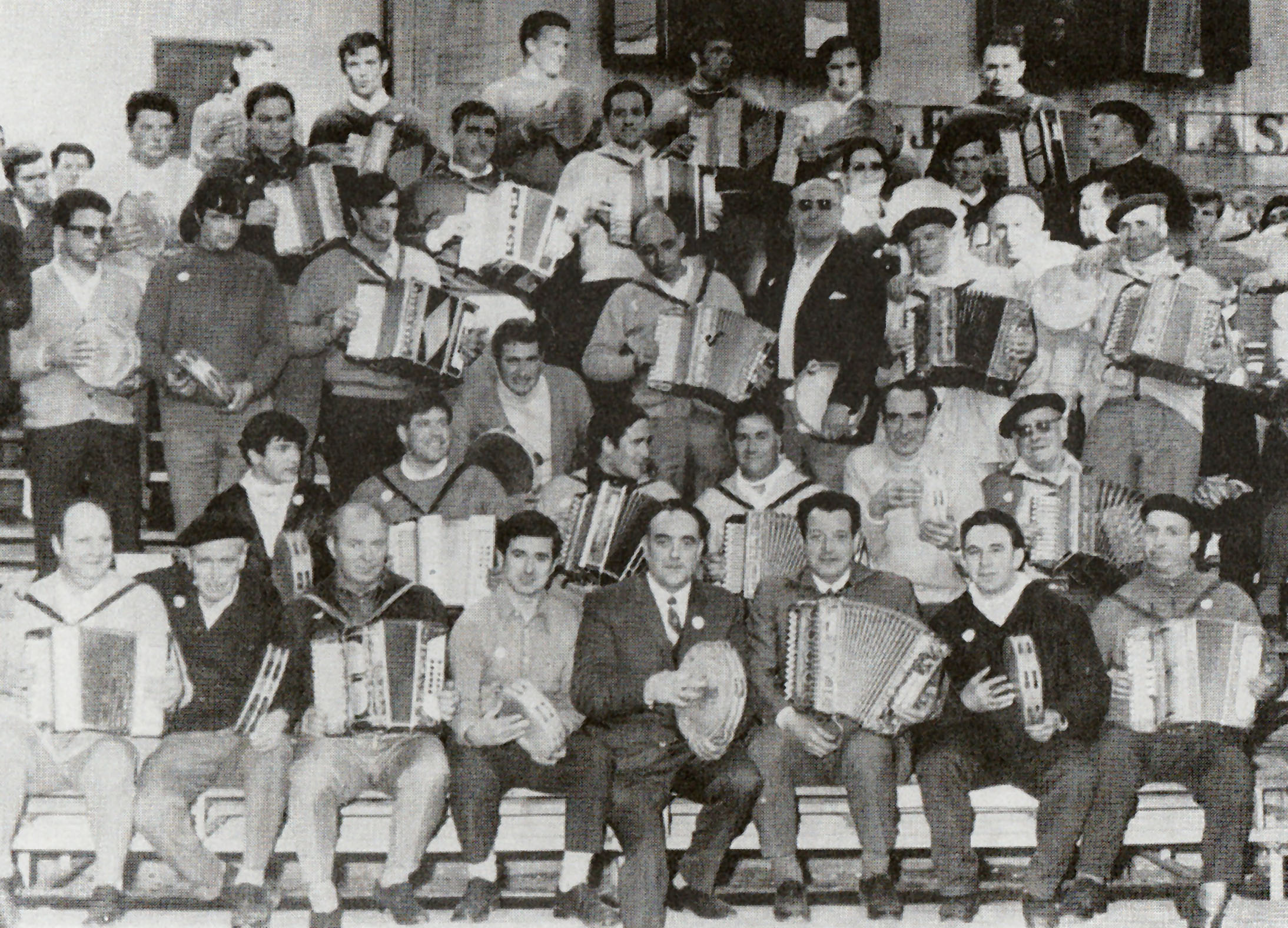
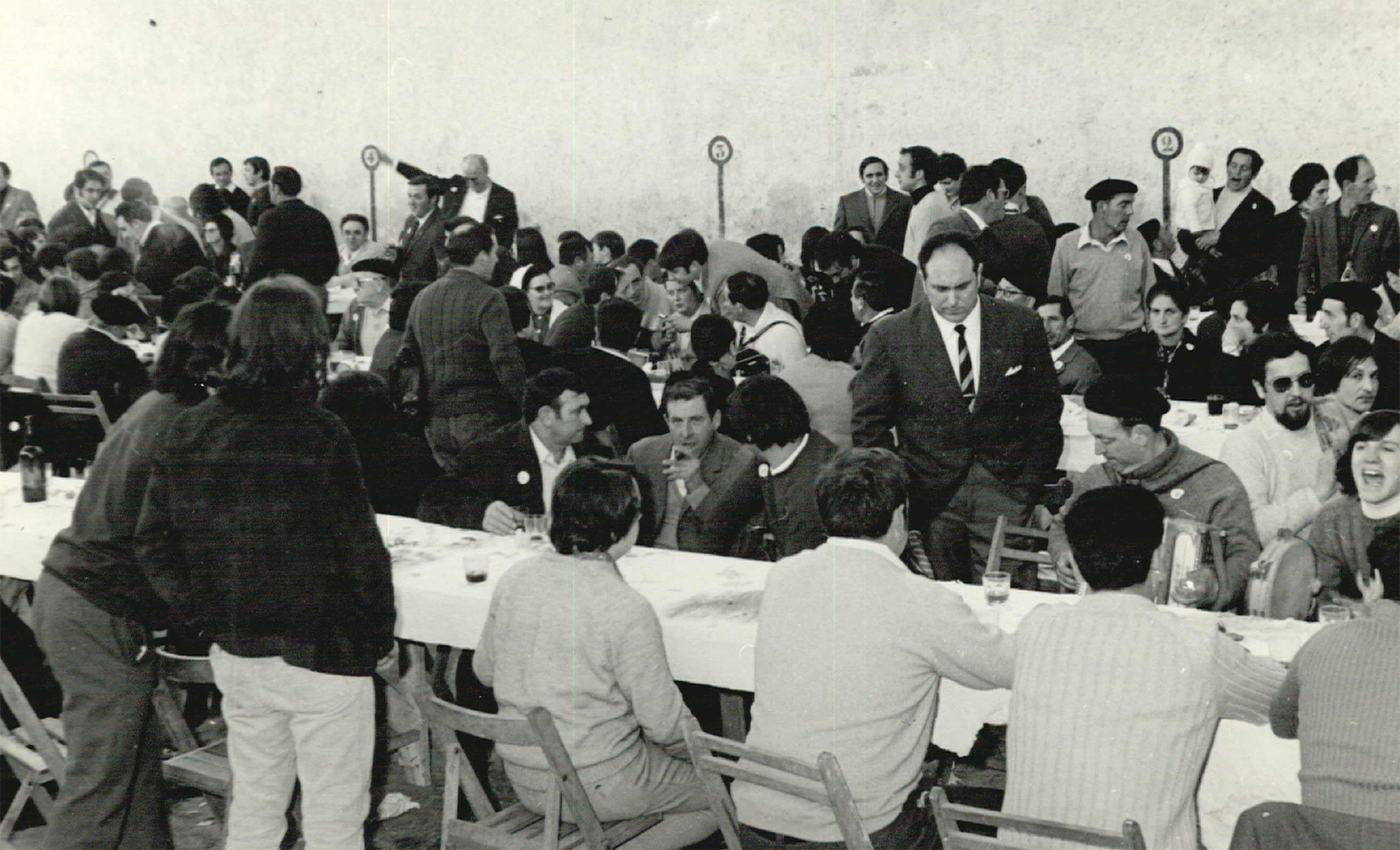
The association gradually became institutionalized and in 1991 it was registered as an official society. But those beginnings were not easy, among other things because they had a lot of interior vicissitudes. Furthermore, when the partnership was founded, the Basque Government refused to subsidise – the budgets for culture were devoured by projects such as the Guggenheim.
From 1993 they managed to turn the difficult situation around and a decade later came to a very important conclusion: that the partnership became an important reference in the trikitixa world.
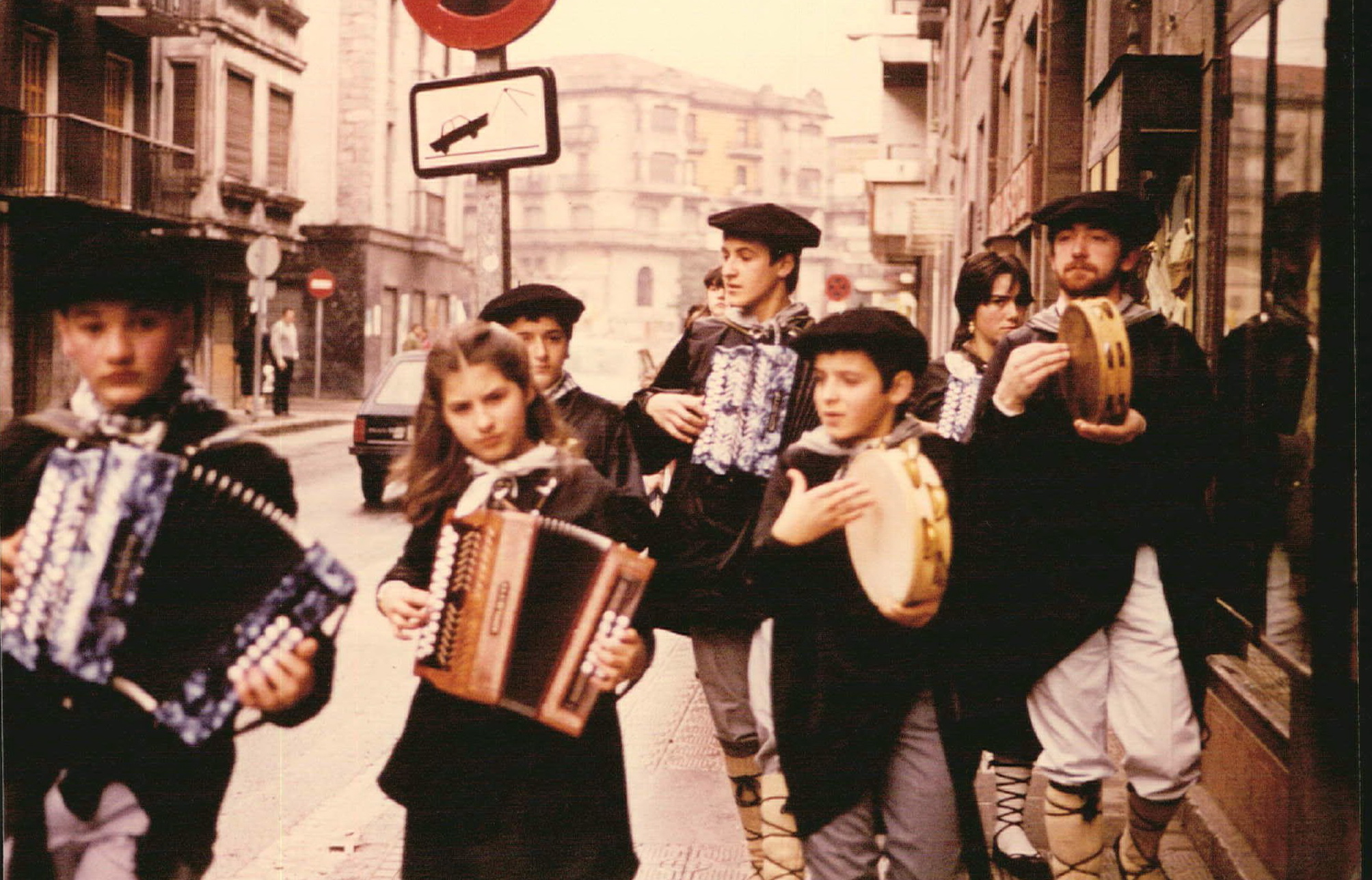
In spite of the militancy, the first liberates began to work to carry out the day to day; they got better places, opened a documentation center, began to make days of reflection about the trikitixa, started the web, organized colonies… The work has been more than 50 years and more, with beautiful photos and lots of data.
Women opened roads
The association has also highlighted the leap it has made in its trajectory towards equality between women and men. The testimonies of the 19th century explain that the initial “trikitixa” was composed of panthera women with percussion and vocal cords – it seems that the diatonic accordion was later incorporated into the trikitixa –. Maurizia Aldeiturriaga, Primi Erostarbe and many other lambs are known.
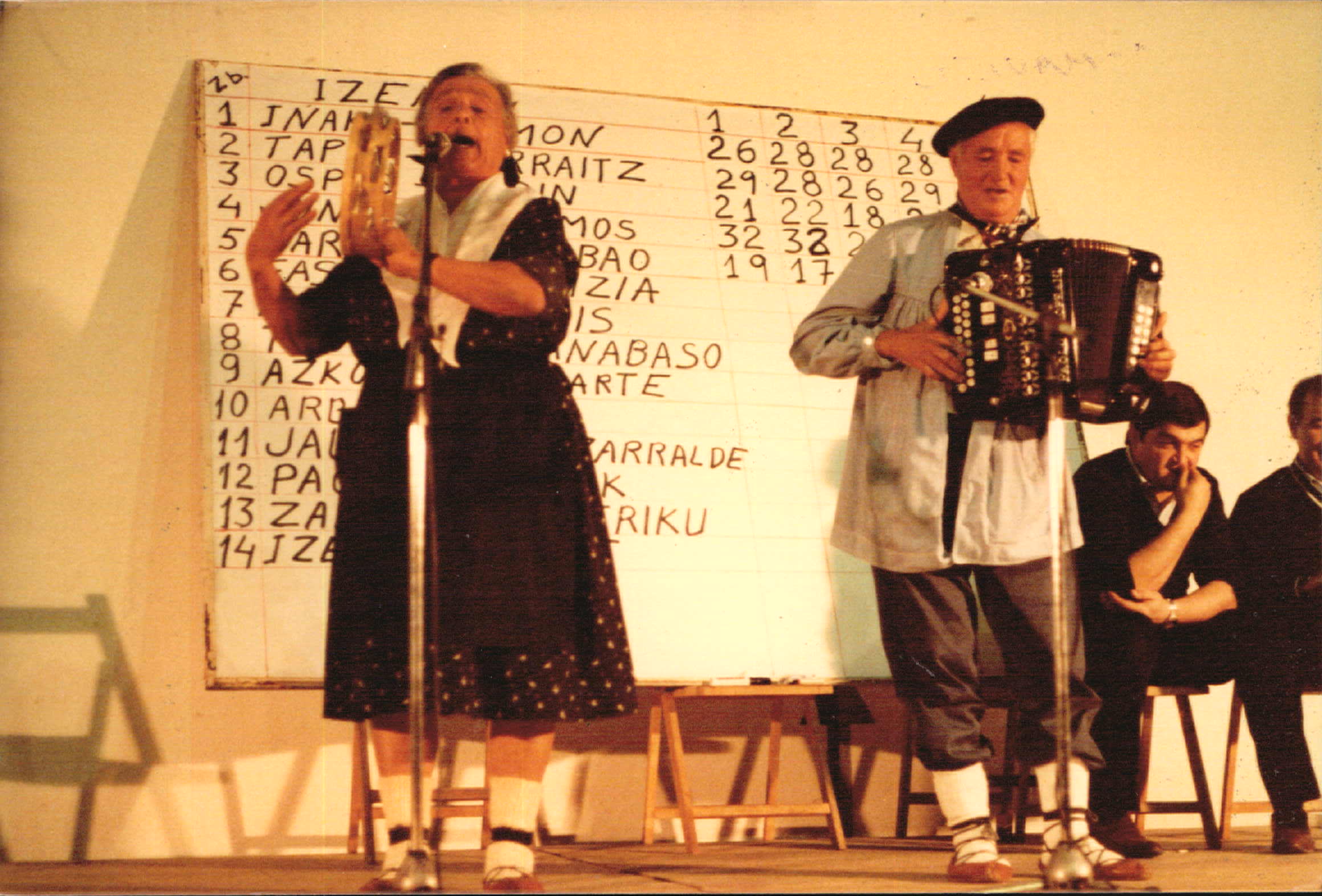
But the chain was about to break when the Trikitixa Association was founded in 1972. There is nothing else to do with the photo of the tribute of Sakabi and Egañazpi in Usurbil, since, as the authors have noticed, only two women appear: Oñati Primi Erostarbe and Azkoitia Mailu Sudupe Egurrola will be in charge of broadcasting the party.
Today, the trikitixa lives a very different time and 80% of the students are women. In the EHKE there has also been a reversal of the gender imbalance, for example, in the role of lehendakari there have been more women.

In addition to parity, the association of trikitixa has dominated in these five decades territoriality, Euskera, creativity and other values, “outside the logic of the market”, as Elizagoien explained. All this is thanks to the “hundreds” of people who have worked for the trikitixa. In Azpeitia on 12 October they have something to claim and how to celebrate it.
Poliorkêtês
Kerobia
Autoekoiztua, 2025
--------------------------------------------------------
Azken aldian, lerrootan asko nabil hausnartzen musikak izan beharko lukeen “misio historikoaz” eta abarrez. Eta, nolabait, zer egin beharko lukeen... [+]
Under the asphalt, the flower
Text: Monica Rodriguez
Illustrations: Rocío Araya translation
of: Itziar Ulcerati
A fin de cuentos, 2025
Ereserkiek, kanta-modalitate zehatz, eder eta arriskutsu horiek, komunitate bati zuzentzea izan ohi dute helburu. “Ene aberri eta sasoiko lagunok”, hasten da Sarrionandiaren poema ezaguna. Ereserki bat da, jakina: horra nori zuzentzen zaion tonu solemnean, handitxo... [+]
Perhaps we could say that this text is the result of an appraisal meeting. However, valuation meetings often leave a dry and bittersweet taste in the mouth. It's a sunny Tuesday afternoon. 16:53. We've connected to the valuation meeting, and we've decided to put a lemon candy in... [+]
I'm talking about Interview. With water and sand
Authors: Telmo Irureta and Mireia Gabilondo.
The actors: Telmo Irureta and Dorleta Urretabizkaia.
Directed by: Assisted by Mireia Gabilondo.
The company is: The temptation.
When: April 2nd.
In which: At the Victoria Eugenia... [+]












